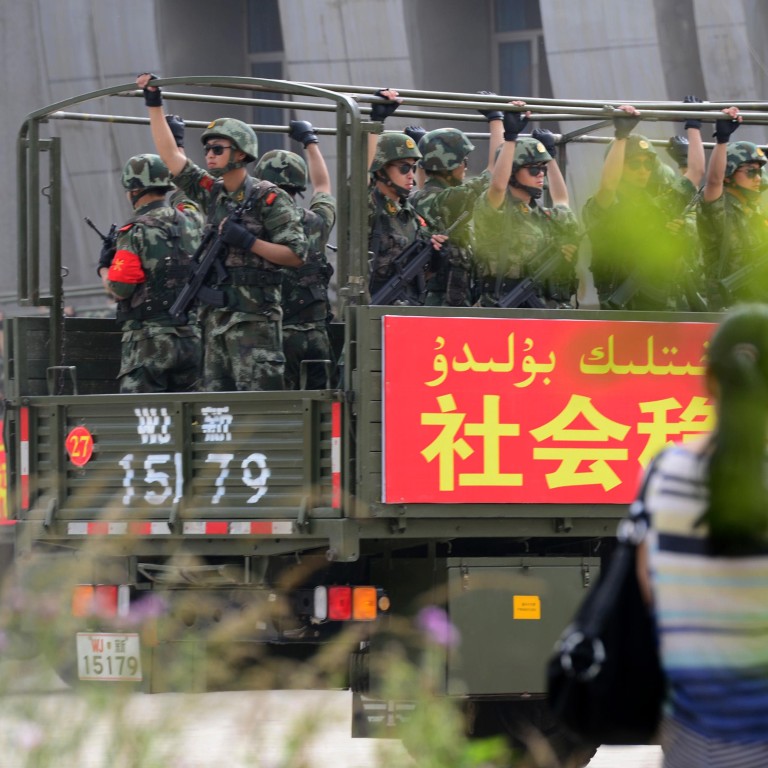
Chasing the jihad bogey in China's Xinjiang
Australia was rocked this week by pictures of a seven-year-old Sydney boy holding up the severed head of a Syrian soldier.
Australia was rocked this week by pictures of a seven-year-old Sydney boy holding up the severed head of a Syrian soldier. His proud father, Khaled Sharrouf, who escaped Australia last year with his wife and three sons to fight for the rebel group Islamic State in Syria and Iraq, captioned the tweeted photos "That's my boy!"
Sharrouf's tweets are an ugly reminder of how the jihadi ideology transcends national boundaries and why any country with a substantial Muslim population needs to pay attention to what's going on in the Middle East. Malaysia and Indonesia are already warning of Islamic State terror spreading to Asia as their citizens join the likes of Sharrouf in distant wars amid rising radicalisation.
The conflict in Xinjiang makes China just as vulnerable. That's possibly why the authorities have been reacting with such nervousness to Uygur unrest in the past couple of months. Yet the latest Islamist resurgence is exactly what should prompt a rethink of Beijing's Xinjiang policy.
Since 9/11, Beijing has bought into the America-inspired "war on terror" and linked it to the Uygur problem. Not entirely without reason, as several Uygurs were found fighting alongside the Taliban in Afghanistan. But in the process, non-Islamist dissidents also got tarred by the same brush and what began as a secular ethno-nationalist movement came to be defined in religious terms.
Its containment has been suitably unsecular, as evidenced in the recent ban on Ramadan fasting - a decree which would agitate even the most progressive of Muslims. Predictably, the holy month ended in protests, rioting and deaths. Just the kind of setting that draws the attention of global jihadists.
It's time Beijing asks itself if it needs that kind of attention. And if it doesn't, whether China is better off framing the Xinjiang problem in terms of territorial separatism rather than Islamist uprising.
It's possibly better to admit to a crack in the "harmonious" ethnic unity and seek ways to mend it rather than continue with a policy that deepens alienation at home and baits powerful enemies abroad beyond Beijing's control. Chasing the bogey of jihad might really drive Xinjiang into the open arms of jihadists.

